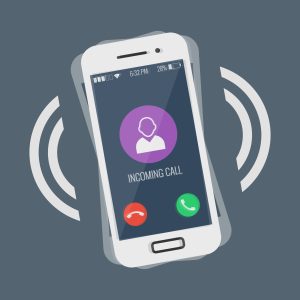Frequently Asked Questions
What is Partner Services?
If you are diagnosed with HIV or certain sexually transmitted diseases, Partner Services is a process by which your sex and/or needle sharing partners are notified that they may have been exposed to an infection and need to be tested.
What are the types of Partner Services available?
-
- Anonymous Third-Party Notification—a professional health counselor notifies your partners. You provide identifying and locating information only. Your name and identity are never shared with your partners. Most people choose this method as it is the only method that provides anonymity.
- Dual Disclosure – you notify your partner in the presence of and with the assistance of a counselor. The counselor supports you during the process and can answer questions from your partner.
- Self-Disclosure – you notify your partners and bring them in or encourage them to come in for testing and treatment. A counselor will help you plan and practice what you are going to say. If your partners don’t come in for services, however, you will be asked to identify them so the health department can contact them. Some people prefer self-disclosure; however, it does not protect your identity and you have to deal with the possible negative reactions from your partners.
 Does Partner Services have another name?
Does Partner Services have another name?
Yes. You may have heard it called Partner Notification, Contact Tracing, or Disclosure Assistance Services. There are materials available that address “Disclosure Assistance Services” or Partner Services. Poster may be obtained to display in clinic settings and medical providers’ offices, and postcards are available for clients to share with partners and colleagues.
There are Virginia laws making it a crime to transmit some diseases. How do I know my information won’t be turned over to the police?
The Virginia Department of Health protects your health information. If such information is requested by law enforcement, the health department will require a court order to block its release and subsequently request assistance from the Office of the Attorney General prior to the release of any information. The health department takes patient confidentiality very seriously. The Partner Services process will not work unless the Virginia Department of Health protects patient information to the greatest extent possible.
Why is this the health department’s business?
Partner Services (identifying, testing and providing treatment to individuals at risk for STDs and HIV) is one of the most effective methods of stopping disease transmission. Many people are unaware that they may have been exposed to an infection. Because many diseases have no symptoms, people can continue to pass them to others without knowing it or suffer long-term health consequences.
What if I’m worried about my safety if my partner finds out I have a sexually transmitted disease?
Health department staff can discuss these concerns with you and help you make a plan, identify support, or obtain referrals for shelters and organizations that specialize in domestic violence.
I don’t think my partner has been with anybody else. If the health department tells them one of their partners has an STD, won’t they know it’s me?
Although there are some cases in which a partner might figure out who infected them, the health department will not confirm this information. This does mean you need to have a conversation with your partner. However, if your partner is not informed, they could pass the STD back to you after you are treated. If they’ve been infected with HIV, they deserve to know so that they can obtain treatment to prolong their life and avoid passing the virus to someone else. Health department staff can help prepare you for this conversation or can talk with you and your partner together.
Will my employer find out?
No. The health department will protect your information and will not disclose it to your employer.
How does this benefit me?
You can avoid an uncomfortable conversation or negative reactions from a partner by leaving the notification process to the health department. You’ll have the satisfaction of having done the right thing. Even if you were in a relationship that ended badly, everyone deserves information necessary to protect their health. If you are still in a relationship with a partner, making sure that they get tested and treated will also protect you from getting another STD.

I met my partner online. I only know their screen name. Can they be located?
The more information you provide, the easier it will be for us to locate your partners. We may be able to reach your partner by their screen name and the chat room/website you met them on. Any additional information you can provide such as nicknames, physical description, where they like to hang out, can also be helpful.
Can the health department make me tell them who my partners were?
No, the health department staff cannot force you to talk with them. However, they may make more than one attempt to discuss partners with you. Notifying people that they may have been exposed to an infectious disease is a critical part of protecting the public’s health. Health department staff may be persistent in their efforts to get the names of your partners. If you provide false information, phone numbers and addresses, you may also get a follow-up visit. You’ll experience less disruption if you are truthful with the health department counselors up front.
How can I contact a counselor?
To talk with a counselor please contact: HIV/STD/Viral Hepatitis Hotline:1-800-533-4148 (toll free) or email the Hotline at hiv-stdhotline@vdh.virginia.gov.
If the Partner Services process is anonymous, why do you need my name and medical information? Can't the health department just contact my partners if I give them the names?
In order to prevent abuse of the system, we must be able to confirm an individual’s diagnosis before we contact any partners. This protects everyone and prevents people from using the process as a prank or in a malicious manner. Your personal information is confidential, and only used for medical confirmation purposes as described. An individual’s name/personal information is never shared with partners in the Partner Services process.
Last Updated: October 19, 2022
